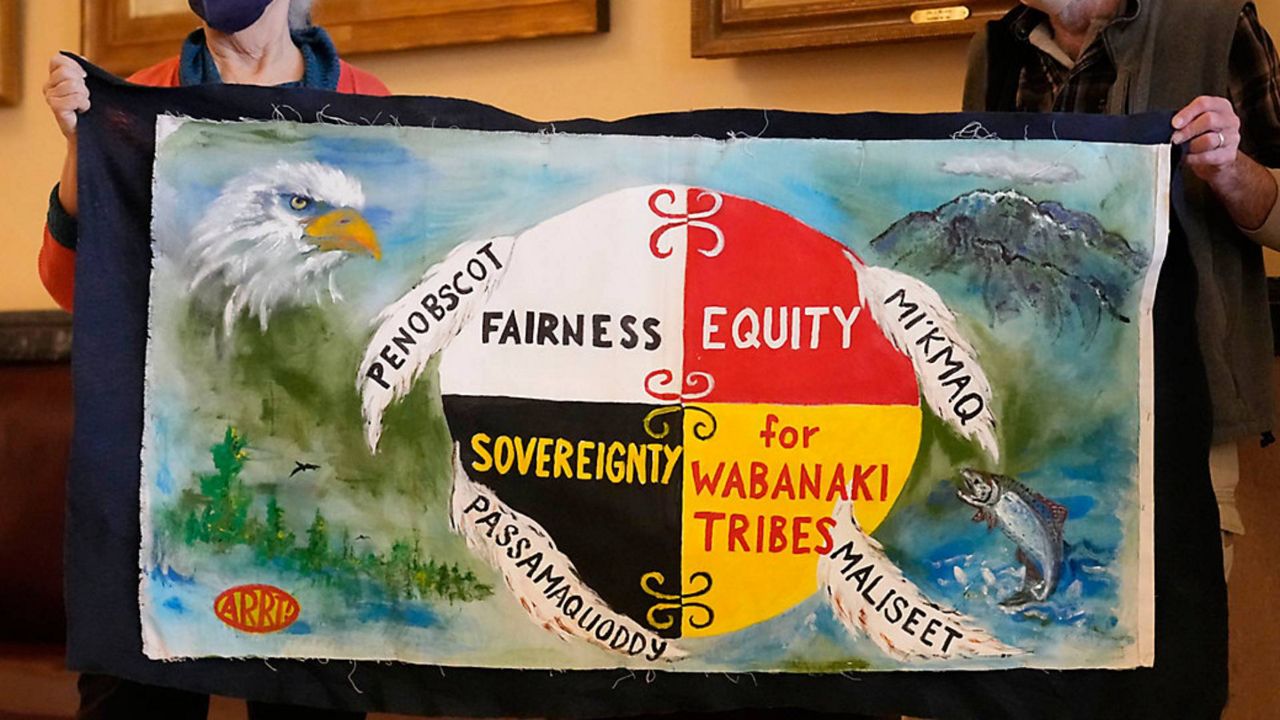The Maine House on Thursday failed to override the governor’s veto of a bill that sought to give Maine tribes direct access to federal laws.
The failure in the House means the bill is dead for this year, although lawmakers are expected to consider a sweeping tribal sovereignty measure next year.
The 84-57 vote fell short of the two-thirds necessary for a veto override.
Prior to the vote, Rep. Aaron Dana of the Passamaquoddy Tribe urged the House to override, saying that Maine tribes want the same types of freedoms guaranteed by the Declaration of Independence.
“We seek the liberty and the pursuit of happiness under a relationship where we have the access to the laws passed by Congress to make native communities safer and healthier,” he said.
But others pointed out shortcomings in the bill, saying that lawmakers did not have enough time to fully consider all of the potential consequences.
“This bill was rushed through,” said Rep. Jennifer Poirier (R-Skowhegan). “Many municipalities that wished to weigh in were not afforded the opportunity. I really want to support the tribes in this matter, but we have to think about how this bill could have negative consequences with all other Mainers and the municipalities.”
Gov. Janet Mills vetoed the bill Friday, saying that while she shares the goal of helping the tribes succeed, the bill passed by lawmakers does not achieve it.
In a statement after the vote, Mills said she is ready to work with the tribes and the federal delegation to support the Wabanaki Nations.
“I do not want to see the Wabanaki Nations unfairly excluded from benefits that are generally available to Federally recognized Tribes,” she said. “I simply believe the interest we share to do right by Wabanaki Nations and Maine people must be accomplished through legislation that is clear, thoroughly vetted and well understood by all parties.”
The bill, LD 2004, was sponsored by House Speaker Rachel Talbot Ross (D-Portland) and passed the House and Senate with strong bipartisan votes last month.
It seeks to give the state’s four recognized tribes — Passamaquoddy, Penobscot, Maliseet and Mi’Kmaq — access to past and future federal laws that are beneficial and would put them on equal footing with the other 570 federally recognized tribes across the country.
In a statement last week, Penobscot Chief Kirk Francis criticized Mills for her stance on the bill.
“We’re disappointed that the Governor continues to block self-determination policies that would better the lives of tribal citizens and rural Mainers,” Francis said. “Her constant insistence that she maintain control over the tribes is an outlier across the country.”
That status dates to 1980, when the tribes traded away some rights under an $81.5 million settlement signed by President Jimmy Carter. The settlement stipulates that tribes are bound by state law and treated more like municipalities.
They are eligible for state education funds but are treated differently than other tribes that deal directly with the federal government.
In her veto letter, Mills said she’s ready to negotiate agreements to help the tribes get access to federal laws on a case-by-case basis, but that LD 2004 as written would “result in widespread confusion about how and where Maine law applied.”
She also wrote that she believes that the 1980 settlement can be amended “to address unanticipated circumstances or identified problems.”
Earlier Thursday, Mills announced that she had signed “historic legislation” that extends to the Mi’Kmaq Nation the same rights and benefits enjoyed by other Wabanaki Nations in the state.
She highlighted the bill as an example of “what the State and the Tribes can accomplish with dialogue and collaboration.”



